The second session of the TetRRIS Policy lab also known as “TetRRIS Winter School” took place in Santander on 9 and 10 February 2023. This was the second session of the lab after the first one held in Brussels, at the EURADA facilities. On this occasion, the session was more ambitious and aimed at exploring current visions and understandings of RRI in territorial innovation ecosystems whilst paying attention to different barriers and drivers that exist in the territories at stake.
A significant number of RRI experts and practitioners congregated at Santander to inspire and provide food for thought for TetRRIS pilot regions (Cantabria, Karlsruhe, Tampere, Szged-Timisoara). The “TetRRIS Winter School” had a part open to the public and a private part intended for consortium members only. The public part was designed to facilitate the cross-fertilisation of ideas between speakers, panellists and regions at stake, whilst enabling spaces for discussion, debate and knowledge exchange. In contrast, the private part was planned to act as a knowledge mobilisation component, focusing on how these novel ideas could support current plans and actions at the different pilot regions.
The public part of the first day of TetRRIS Winter School started with the institutional welcome of Jorge Muyo, General Director of Innovation at Cantabria Government, who explained how the TetRRIS project has shaped the development of the new Smart Specialization Strategy (S3) in the Cantabria region. He also mentioned how different concepts and ideas promoted by RRI, such as gender equality or anticipation, are important matters for regional policy. After this welcome, Raúl Tabarés from TECNALIA provided an overview of the event and introduced the first speaker, Edurne Iñigo from Deusto University who showed the audience how innovation history is shaped by the constant need of solving problems and how economic externalities of these innovations are also transformed into new problems. Edurne also paid attention to the different challenges and needs faced by urban and rural areas and how these should be addressed inclusively by regional policies.
Following that, Mario Pansera from Vigo University connected online to talk about the limits of circular economy and the role of responsible innovation in it. He stressed how free natural resources and the appropriation of free labour such as care are two important components that explain how the economy has developed during the last 50 years and how these components are not included in the GDP calculation. He also mentioned during his exposition the limits of the circular economy and how we should adopt other economic paradigms not based on growth such as “ecological economics” or degrowth.
The public part of the first day was closed with a panel facilitated by Emad Yaghmaei (YAGMA) that gathered Marcos López Hoyos (IDIVAL), Nicté García Soria (UJI) and Laure Rosso (CEEIM). Entitled “Ethics, Sustainability and Welfare”, the panel aimed to engage the audience with the results of three projects such as Cohorte Cantabria, Ethna Systems and Cherries. Following their presentations, different questions from the audience emerged for promoting a debate with the panellists. The discussion pivoted around issues such as framing co-creation and RRI as organisational investments that do not have a return in the short term and sustainability issues that demand aligning different interests, motivations and strategies.
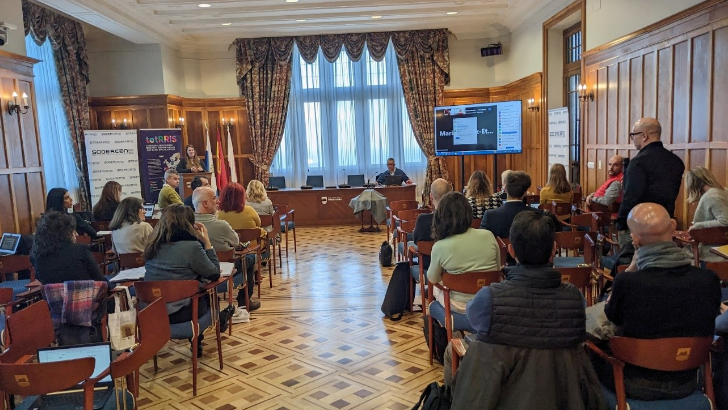
Figure 1: Q&A during the public part.
After lunch, participants at the lab engaged in the private part of the first day, oriented to act as a knowledge mobiliszation component and where different mechanisms and dynamics for facilitating information sharing and knowledge exchange between regions were employed for consolidating learnings and insights achieved in the project.
The public part of the second day of TetRRIS Winter School started with Raluca Cibu-Buzac (Luminspinno) who presented the history of S3 to the audience. She explained how these strategies are now being reoriented to meet new sustainability demands and the uncertainties associated with them. Raluca paid attention to different issues that determined the success of S3 in different regions such as a strong stakeholder culture and regional innovation cultures.
After this talk, three speakers were conveyed into the next panel called “Engagements, Transitions and Transformations” with Antonia Bierwirth (TECNALIA) as moderator and Petar Vrgovic (UNS), Rosa Arias (Science for Change) and Rachel Claire Tully (AGENEX) as panellists. The speakers talked about different projects such as CO-Change, Transform and RIPEET and the importance of providing different levels of engagement for enabling different kinds of participation, motivation and commitment.
Following the panellist’s interventions and some questions from the audience, participants were conveyed to have a coffee break and returned later to the room to address the private part of the policy lab and to continue working on the dynamics and exercises that were launched the day before.
TECNALIA team will also organise the last session of the TetRRIS Policy Lab in liaison with the final conference of the project that will be held in Finland this summer (more information to follow).
Raúl Tabarés and Xabier Uriarte
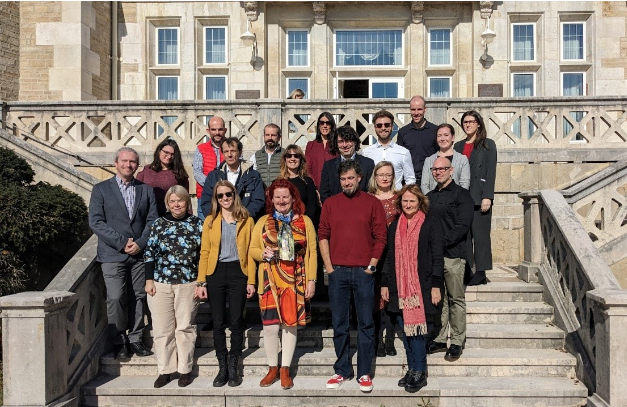
Figure 2: Group consortium picture
Hits: 337

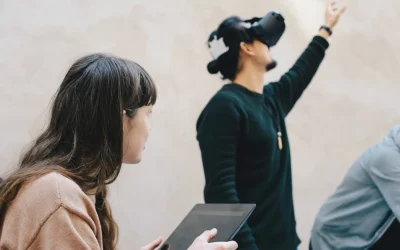

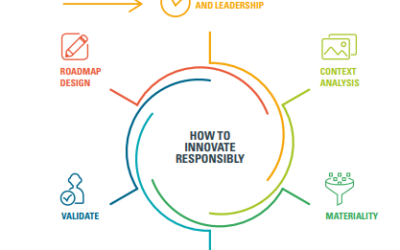
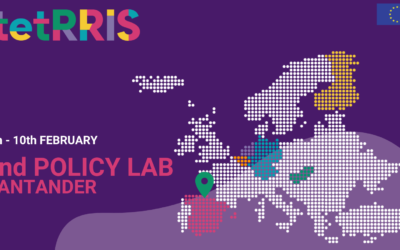
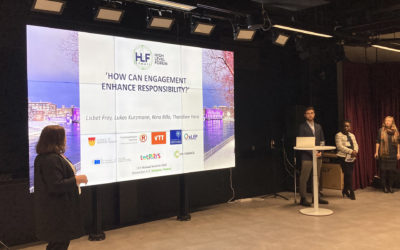
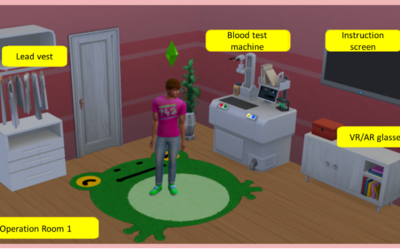

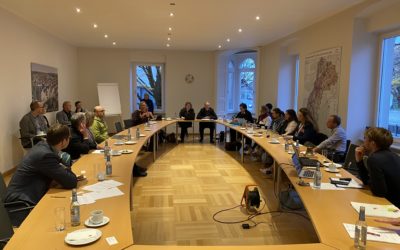

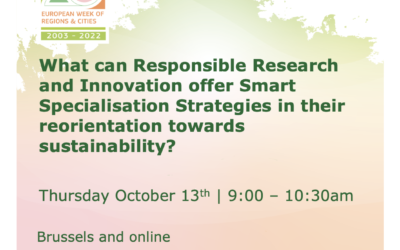
0 Comments